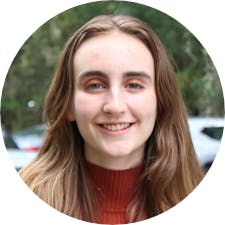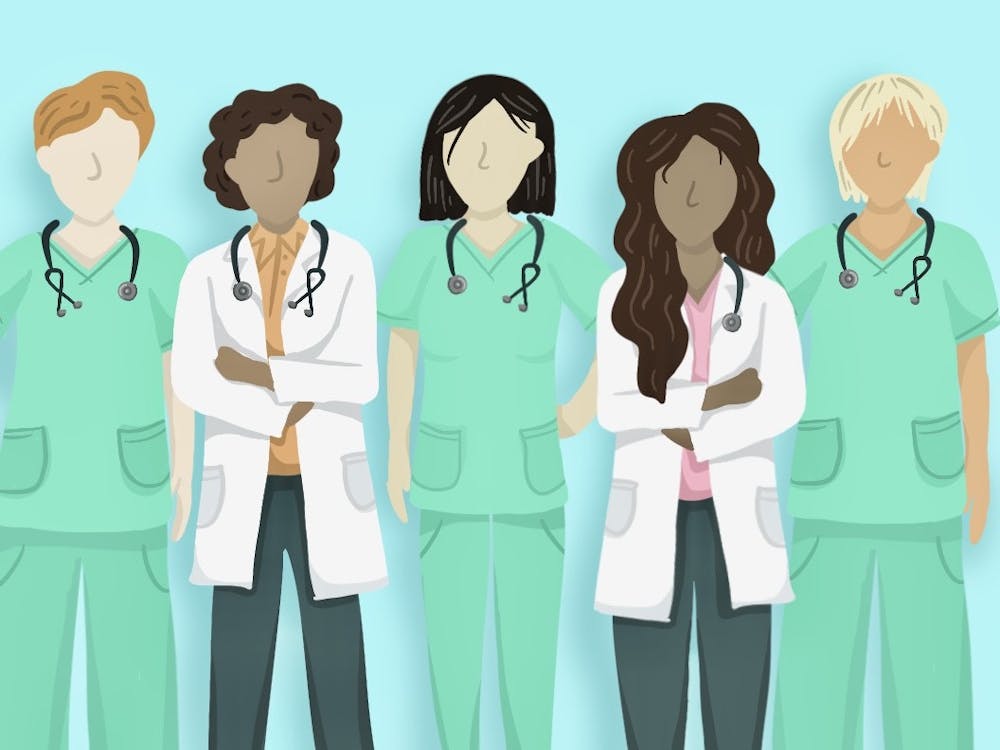More than half of UF College of Medicine departments now have a diversity, equity and inclusion liaison — a faculty member specifically dedicated to addressing social issues within the college.
The program has been in development since earlier this year. Liaisons are chosen by department heads. So far, 16 of 29 departments have appointed one. Some large departments have selected two, such as anatomy and cell biology where John Aris and Nadja Makki serve as its liaisons.
Mar’Tina Wimberly was asked to be a liaison in early September. As a Black woman and a professor in the department of community health and family medicine, Wimberly was eager to start giving back to her university, she said.
She received her medical degree from UF in 2017, and she said one of the reasons she made it through school was because of the Office for Diversity and Health Equity.
The office provides resources and mentors to what it defines as underrepresented groups in medicine — African American, Latino, Native American and LGBTQ students.
Led by Donna Parker, College of Medicine associate dean for diversity and health equity, Wimberly’s now part of a network of diversity liaisons to better support workplace inclusion as well.
“The office was sort of a hub for me,” she said. “I had support. And to help with improving that within the department and the college campus, it’s a big deal for me.”
The goal is to have liaisons in all College of Medicine departments, Wimberly said, so they can form a team across departments to develop diversity initiatives. The program’s also meant to involve younger minority faculty as diversity liaisons to give them chances to further develop their careers.
Wimberly’s most looking forward to networking with other liaisons and forming a community with them, she said. Within her own department, she said it’s exciting to have a formal program dedicated to inclusion.
Wimberly plans to work on recruitment of underrepresented employees and finding ways to help them individually improve as faculty, as well as helping them get promotions.
At the end of the day, Wimberly said, these sort of initiatives improve the College of Medicine’s ability to research and take care of patients. A more diverse faculty will develop trust with a diverse body of patients, she said.
“Our department should look like the people that we’re serving,” she said.
This program comes from a series of recent efforts from the College of Medicine to improve its diversity outreach. The percentage of underrepresented groups in UF faculty — African American, Latino and Native American — was 11.3% in 2021, according to the UF Diversity Dashboard.
It has risen by less than a percentage point since 2018. However, underrepresented groups in students enrolled in the College of Medicine show more promise: 24.1% in 2021, rising three percentage points from 2018.
Ellen Zimmermann, a UF professor and College of Medicine associate dean who's been involved in academic medicine for more than 25 years, said the field has changed drastically in favor of inclusion and diversity. But there’s still prejudice that creates a need for change.
As a college leader, Zimmermann often hears stories from her colleagues about past discrimination.
“There are still remnants of preference in choosing people for certain opportunities,” she said. “Keeping the focus on how important these initiatives are will hopefully take us to a place where implicit bias doesn’t subtly color the decisions we make.”
Zimmermann helped design an implicit bias workshop two years ago to try to remedy problems. She and her coworkers in faculty development have presented the two-hour workshop to almost all departments in the College of Medicine, she said.
The workshop was solidified in January 2020, just before the resurgence of the Black Lives Matter movement in response to the murder of George Floyd. She was glad they had developed it beforehand because it allowed them to get started on changes right away, she said.
The workshop was a step in the right direction just before there was a national shift to look at diversity and inclusion more closely, she said.
But there’s still more work to be done, Zimmermann said.
“I think we’re in a good place, but we haven’t addressed everything,” she said. “We have a ways to go.”
Contact Siena at sduncan@alligator.org. Follow her on Twitter @SienaDuncan.

Siena Duncan is the Fall 2024 Editor-in-Chief of the Alligator. She's interned for the Salt Lake Tribune, the Tampa Bay Times and POLITICO. In her spare time, she loves to take walks to see the cows by her apartment and add more to her sketchbook.






